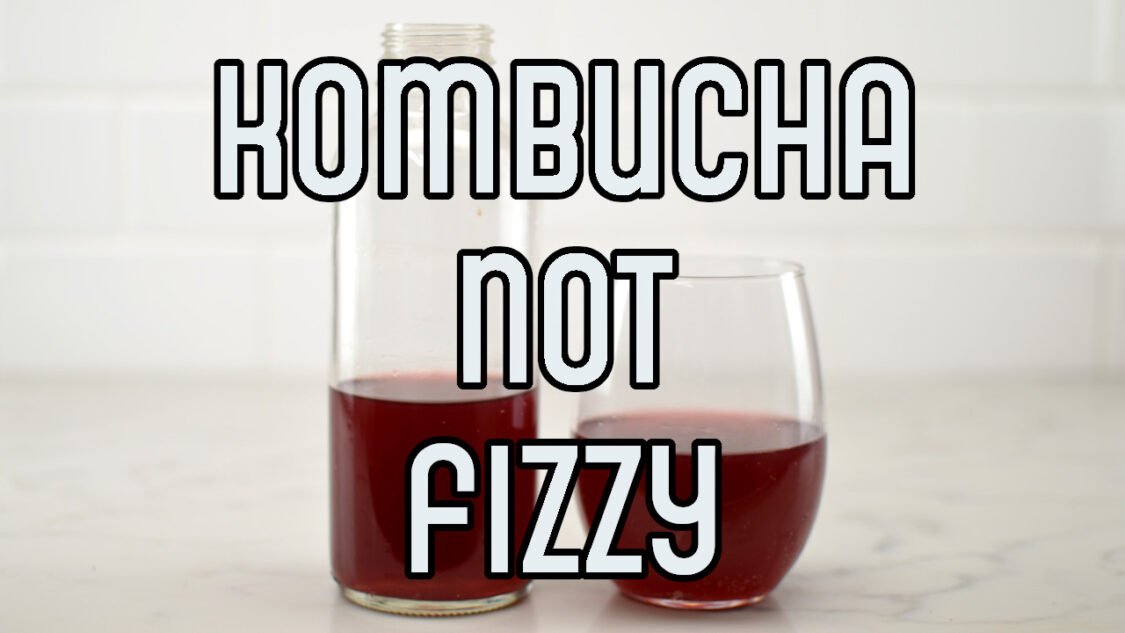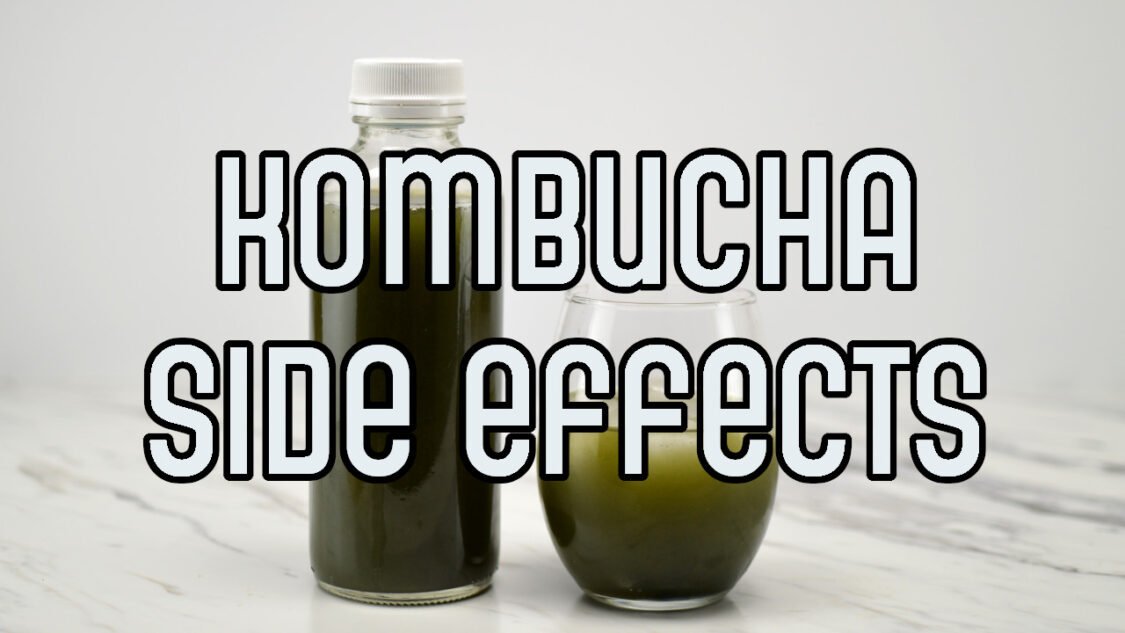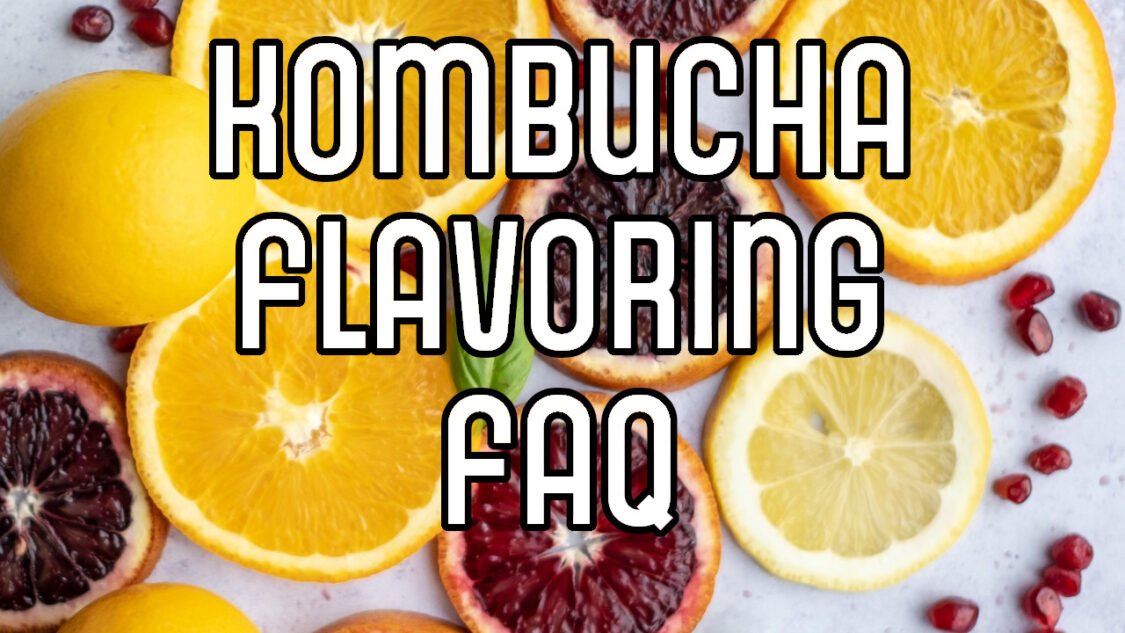How long does kombucha last?
Does kombucha expire and how can you tell? Can you drink expired kombucha? Read about how to safely store and consume kombucha.

Kombucha, with its effervescent fizz and myriad of health benefits, has become a staple for many people. As more people drink our favorite fermented tea, questions about its shelf life and storage practices are often raised.
In this article I’ll attempt to demystify the facts around the shelf life of kombucha, exploring whether it truly “goes bad,” how long it lasts under different conditions, and the crucial role of refrigeration in preserving its distinct flavors.
Does Kombucha Go Bad?
Kombucha, well known for its health benefits and unique taste,
The truth is that kombucha doesn’t exactly “go bad” in the traditional sense. Rather, its character evolves over time, influenced by factors such as fermentation and storage conditions.
Can kombucha go bad? The answer lies in the composition of this fermented beverage. While kombucha itself is resilient, its taste may transform into a more pronounced bitterness and vinegar-like profile as it matures.
Does kombucha have to be refrigerated to prevent mold growth? No necessarily. Once fermented and placed into bottles for secondary fermentation it should be resistant to mold growth until opened. The same is true for store-bought kombucha.
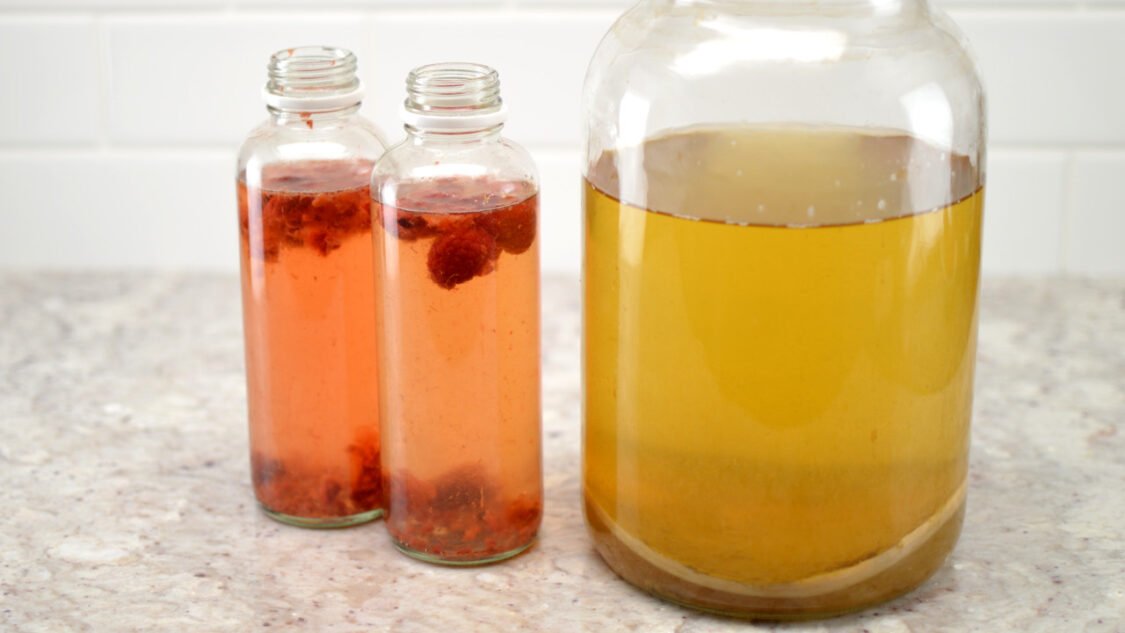
HOW LONG DOES KOMBUCHA LAST?
Kombucha never really expires; However, its taste tends to become more bitter and vinegary as it is stored for an extended period.
Storing kombucha in a refrigerator helps slow down the fermentation process, preserving its sweetness. Remarkably, an unopened bottle of kombucha can maintain its quality for several months beyond the printed expiration date when kept in the fridge.
How long kombucha lasts is largely dependent on the storage conditions and time since it was bottled. Kombucha stored in a fridge will last for months, but the same bottle left open on a countertop will degrade much faster.
How long does kombucha last in the Fridge?
The shelf life of kombucha in the fridge depends on several factors, including whether the bottle is opened or unopened and the specific storage conditions. Here are general guidelines:
Unopened Kombucha: If stored in the refrigerator, unopened kombucha can last for several months beyond the printed expiration date on the bottle. The cold temperature helps slow down the fermentation process and preserves the quality of the beverage.
Opened Kombucha: Once a bottle of kombucha is opened, its shelf life is generally shorter. It is recommended to consume opened kombucha within a few days to a couple of weeks for optimal taste. Regularly check for changes in odor, appearance, or taste, and discard it if it shows signs of spoilage.
Homemade Kombucha: If you’ve brewed your own kombucha at home, the storage duration may vary. Homemade kombucha tends to have a shorter shelf life compared to commercially produced ones, and factors like the specific recipe, fermentation time, and storage conditions affect the shelf life.
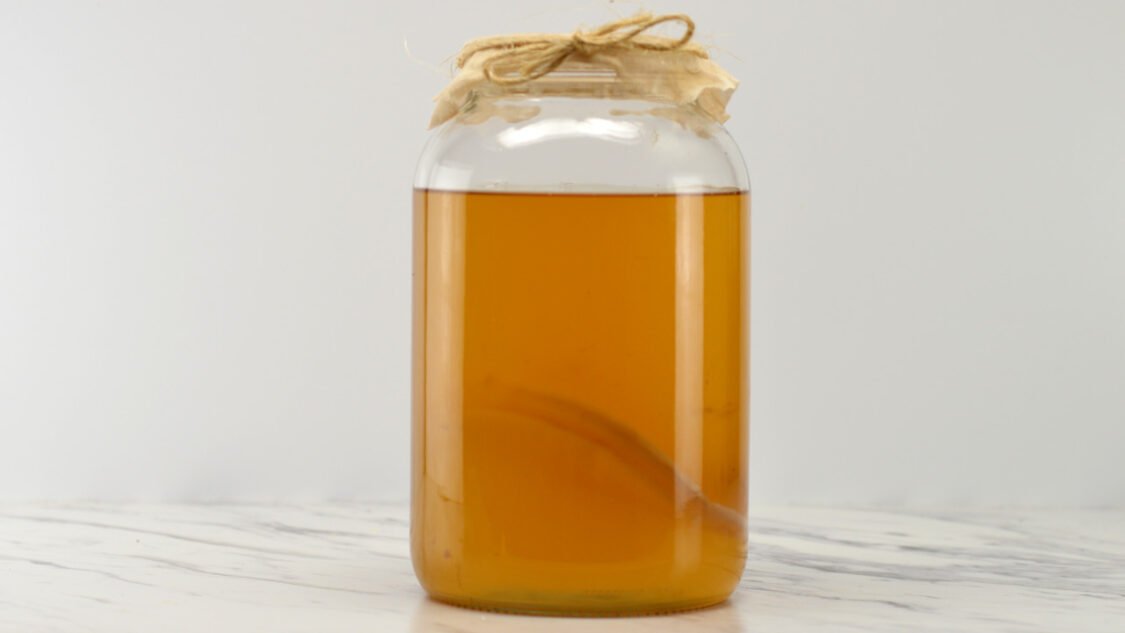
Kombucha Fermentation
To gain a deeper understanding of how long does kombucha lasts (and when/why does kombucha expire), it’s important to recap what kombucha is and how it is made.
Kombucha is a probiotic drink that’s made by fermenting tea, sugar, a starter and a SCOBY over the course of 7 days to a month. The good bacteria and yeasts in the SCOBY (Symbiotic Colony of Bacteria and Yeast work together to produce a specific kind of fermentation which converts sweet tea into a fizzy, tangy beverage.
As the microbes in the SCOBY consume the sugars and alcohol in the tea, the kombucha becomes more acidic, giving it a distinct tart taste. When the kombucha has reached the desired level of tartness, it is bottled, carbonated and refrigerated.
Refrigerating kombucha drastically slows down the activity of the yeast and bacteria and therefore the fermentation itself.
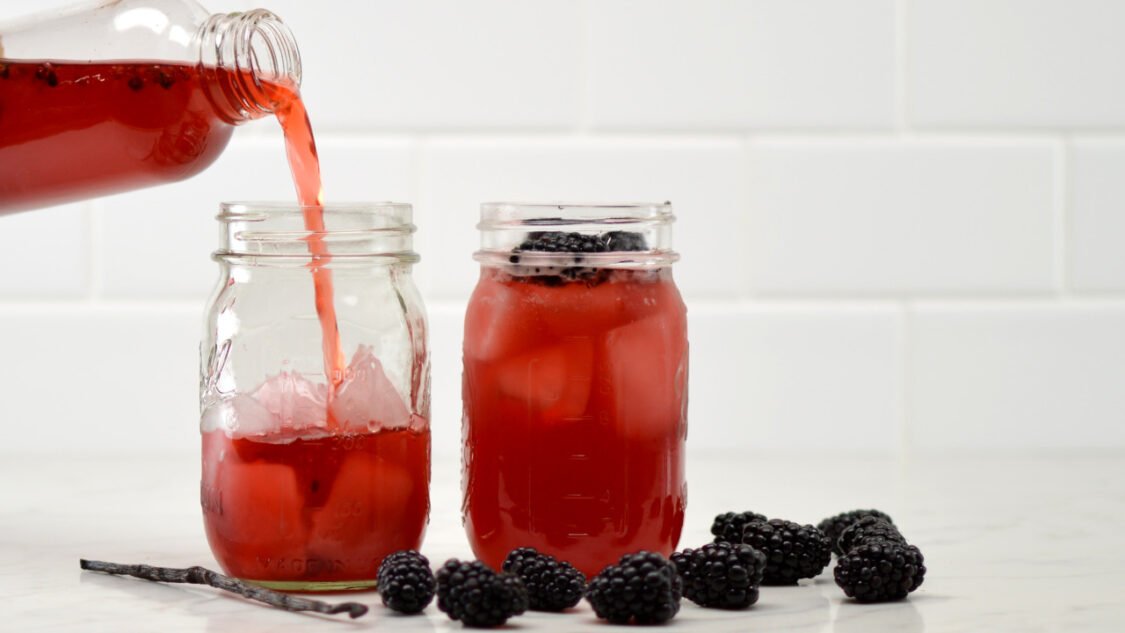
Does Kombucha need to be refrigerated?
Yes. Kombucha is loaded with beneficial living cultures that are ideally kept in a refrigerated environment.
Refrigeration isn’t just a matter of preference; it’s important in preserving the freshness and taste of your kombucha. The fermentation process that gives kombucha its flavor and effervescence don’t stop once the bottle is sealed.
Refrigerating kombucha significantly slows this process ensuring that it retains its sweetness and characteristic flavor profile.
When you store bottled kombucha outside the refrigerator, the live cultures will continue to make the kombucha more acidic and produce more carbonation.
The additional acidity makes it taste more like vinegar and the additional carbonation can result in bottles that gush when opened.
Unrefrigerated kombucha is still safe to drink and also has a very long shelf-life but many find the strong flavor unpleasant. Most people wouldn’t want to drink it after a year because even if it’s refrigerated, it’ll likely taste strongly like vinegar.
Can You Drink Expired Kombucha?
Understanding expiration dates: Commercially produced kombucha bottles often come stamped with an expiration date (or “Best By” or “Sell By” date) serving as a guideline for optimal freshness.
Many commercial producers of kombucha are members of the Grocery Manufacturers Association and the Food Marketing Institute and agree to follow the guidelines set forth by these organizations, one of which is printing expiration dates on the food packaging.
Can you drink expired kombucha? In most cases, yes. Consuming kombucha a few weeks or even months beyond the expiration date is generally safe. The fermentation process acts as a natural preservative, inhibiting the growth of harmful bacteria.
It’s essential to use your senses – if your kombucha exhibits unusual odors, flavors, or visible signs of spoilage, it’s best to err on the side of caution and discard it.
Since kombucha is a naturally fermented product, it has a long shelf life and can easily exceed the date listed on the bottle. Kombucha beyond the labelled date isn’t necessarily bad, the flavor profile might be off (more tart) and is typically safe to drink, even after the expiration date.
How long is kombucha good for after opened?
Once you open a bottle of kombucha, either homemade or store-bought, it will begin to lose carbonation. To help rebuild carbonation in an open bottle you can leave it at room-temperature for a day or two with the cap on then place it back into the refrigerator.
Be aware it may not gain much additional carbonation depending how much residual sugar is left in the kombucha and how much of the bottle is left–it takes much more carbon dioxide to pressurize the head space (air) in the bottle before the kombucha itself will gain more carbonation.
An open bottle of kombucha will likely have a shorter shelf life due to the loss of carbonation, entry of oxygen and potentially bacteria (from the air or your lips if you drank from the bottle)

How do you know if kombucha is bad?
It is uncommon for kombucha to go bad after it has been bottled for serving; however, here are some things to look for to determine if your kombucha has gone bad:
- Unusual Odors: A fresh batch of kombucha has a distinctive, tangy aroma. If you detect any off-putting or foul odors when opening the bottle, it may be a sign that unwanted microorganisms have found their way into your brew.
- Mold Presence: Visible mold is a clear red flag. It is typically circular, fuzzy and greenish colored, typically appearing on top of the kombucha is a sign that your kombucha has gone bad.
- Unpleasant Taste: Extra vinegary or overly tart kombucha has simply been over fermented. It is safe to drink, but some find the strong vinegar taste unappealing and this is a sign it’s past it’s prime.
- Excessive or lack of Fizz: While effervescence is a characteristic of kombucha, an excessive amount of fizz or an absence of bubbles may indicate an imbalance in the fermentation process, potentially affecting the taste and safety of the beverage.
- Sediment and floaties: Sediment, floating chunks and brown stringy things floating in the kombucha are normal. These are strands of yeast, a natural component in kombucha
Kombucha Storage FAQs
How long can kombucha sit out?
The length of time kombucha can sit out at room temperature without refrigeration depends on various factors, including the stage of fermentation, the ambient temperature, and whether the bottle is sealed or opened. Here are some general guidelines:
Unopened Kombucha: If the kombucha is unopened and stored at room temperature, it can typically last for several weeks to a few months, depending on the specific brand and storage conditions. The fermentation process is slower when the bottle is sealed.
Opened Kombucha: Once a bottle of kombucha is opened, the exposure to air accelerates the fermentation process. Therefore, it is advisable to consume opened kombucha within a shorter timeframe, ideally within a few days to a couple of weeks, to maintain its optimal taste.
Homemade Kombucha: If you’ve brewed your own kombucha, the duration it can sit out depends on the specific recipe and fermentation factors. Generally, homemade kombucha may have a shorter shelf life than commercially produced ones.
can expired kombucha make you sick?
Drinking spoiled or bad kombucha can potentially lead to health risks, as it may contain harmful microorganisms that could cause illness.
Never drink kombucha if you believe it is infected with mold which can produce mycotoxins. Ingesting mycotoxins can lead to adverse effects on the liver, kidneys, and other organs.
Read more on the side effects of kombucha here.
Does the fruit in kombucha affect how long it will last?
If your kombucha has fruit in the bottle from secondary fermentation it does not affect how long the kombucha is good. In fact, the fruit is “pickled” and will remain good. Read more at does the fruit in kombucha go bad?
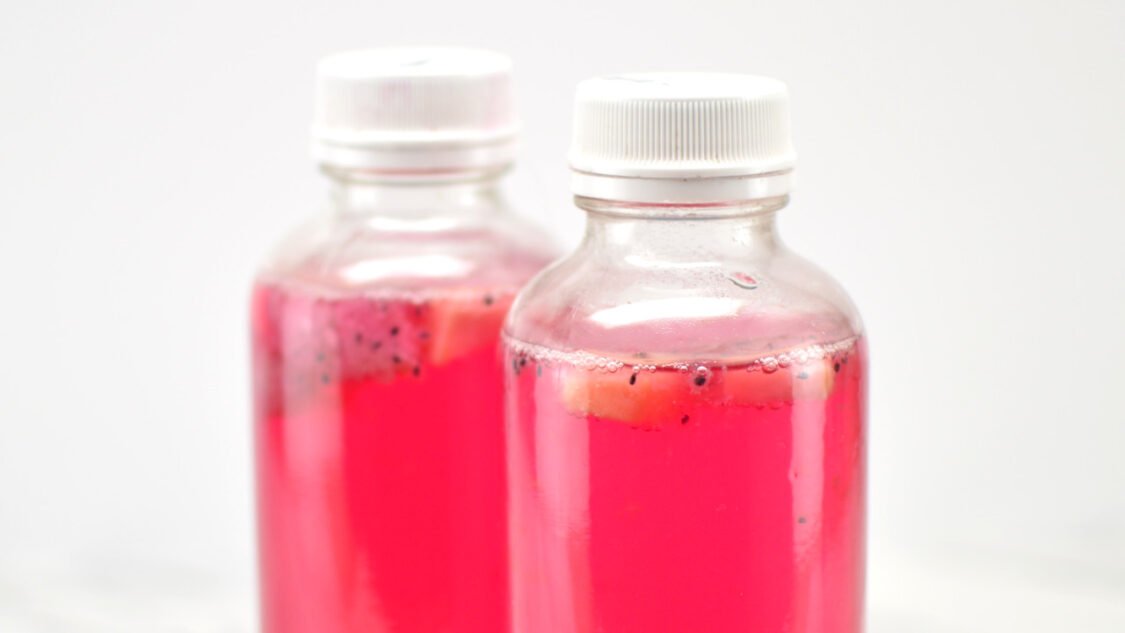
Helping you learn to brew kombucha, find inspiration for new kombucha flavors and use kombucha to make kombucha mocktails

